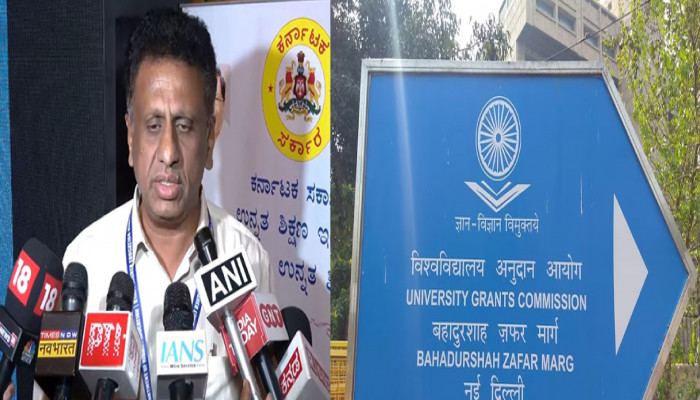Six states call to withdraw from draft UGC regulations 2025
- In Reports
- 11:24 AM, Feb 06, 2025
- Myind Staff
Six states have passed a joint resolution calling for the withdrawal of the draft UGC Regulations, 2025, which set minimum qualifications for hiring and promoting teachers in universities and colleges, as well as measures to maintain higher education standards.
On Wednesday, the State Higher Education Ministers-2025 conference in Bengaluru saw the adoption of a 15-point resolution by the states of Himachal Pradesh, Jharkhand, Kerala, Tamil Nadu, Telangana and Karnataka. According to the States, the draft UGC regulations violate the legitimate rights of the State in a federal setting as they do not envision any role for State Governments in appointing the vice-chancellors of public universities founded under State Acts. The resolution called for a key role in the appointment of vice-chancellors of state public universities to be entrusted to state governments. The resolution states that the regulations significantly limit the States' authority in forming search-cum-selection committees for appointing Vice Chancellors.
The States also demand the withdrawal of the provision allowing non-academics to be appointed as Vice Chancellors. According to the resolution, the requirements for vice chancellors' terms, qualifications, and eligibility need to be carefully reexamined as they affect higher education standards. “The removal of the Academic Performance Indicator (API) system of evaluation and introduction of the new system allowed a high level of discretion and must be re-evaluated. Several provisions related to the appointment of Assistant Professors required a serious reconsideration including the provisions related to non-requirement of basic degree in the core subject concerned,” said the resolution.
The States requested clearer guidelines on contractual appointments, including guest faculty, visiting faculty, professors of practice and emeritus professors, before finalising the regulations. They expressed concerns that the penalties for violating the draft UGC regulations were too harsh, extreme and undemocratic and urged a serious reconsideration of these provisions. The States also criticised making all NEP proposals mandatory and enforcing strict penalties for non-compliance, calling it authoritarian and a violation of the States' autonomy within the federal structure. “More emphasis in regulations is required on industry-academia collaboration to enhance innovation and research ecosystem in public universities. The draft regulations and grading parameters are designed to promote private institutions, ignoring the welfare aspect of government/public institutions,” said the resolution.
According to the States, requiring entrance exams for foundational undergraduate courses is a major obstacle to raising GER and delivering inclusive education. “Promotions, biannual examinations, fast-track degree programmes, dual degrees, multiple entry and exit, etc., require further deliberations and clarity before implementation. The UGC must engage in a collaborative, consultative process with the States in framing these regulations in the spirit of cooperative federalism,” said the resolution.







Comments